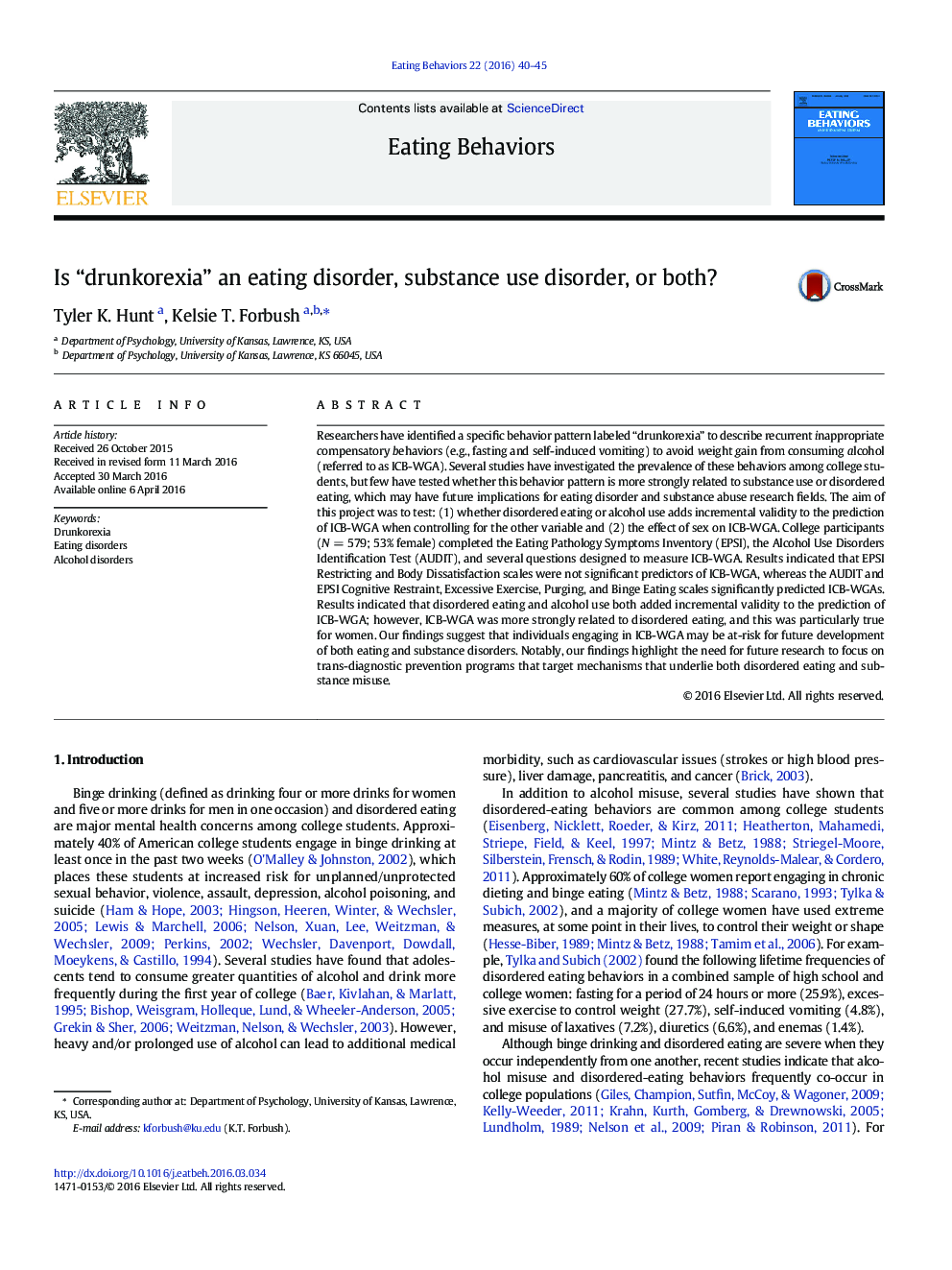| کد مقاله | کد نشریه | سال انتشار | مقاله انگلیسی | نسخه تمام متن |
|---|---|---|---|---|
| 906187 | 1472881 | 2016 | 6 صفحه PDF | دانلود رایگان |
• ICB-WGA was more strongly related to disordered eating than alcohol use in women.
• ICB-WGA was equally related to disordered eating and alcohol use in men.
• Both disordered eating and alcohol use added incremental validity to ICB-WGA.
• Prevention protocols should consider addressing ICB-WGA differently for each sex.
Researchers have identified a specific behavior pattern labeled “drunkorexia” to describe recurrent inappropriate compensatory behaviors (e.g., fasting and self-induced vomiting) to avoid weight gain from consuming alcohol (referred to as ICB-WGA). Several studies have investigated the prevalence of these behaviors among college students, but few have tested whether this behavior pattern is more strongly related to substance use or disordered eating, which may have future implications for eating disorder and substance abuse research fields. The aim of this project was to test: (1) whether disordered eating or alcohol use adds incremental validity to the prediction of ICB-WGA when controlling for the other variable and (2) the effect of sex on ICB-WGA. College participants (N = 579; 53% female) completed the Eating Pathology Symptoms Inventory (EPSI), the Alcohol Use Disorders Identification Test (AUDIT), and several questions designed to measure ICB-WGA. Results indicated that EPSI Restricting and Body Dissatisfaction scales were not significant predictors of ICB-WGA, whereas the AUDIT and EPSI Cognitive Restraint, Excessive Exercise, Purging, and Binge Eating scales significantly predicted ICB-WGAs. Results indicated that disordered eating and alcohol use both added incremental validity to the prediction of ICB-WGA; however, ICB-WGA was more strongly related to disordered eating, and this was particularly true for women. Our findings suggest that individuals engaging in ICB-WGA may be at-risk for future development of both eating and substance disorders. Notably, our findings highlight the need for future research to focus on trans-diagnostic prevention programs that target mechanisms that underlie both disordered eating and substance misuse.
Journal: Eating Behaviors - Volume 22, August 2016, Pages 40–45
